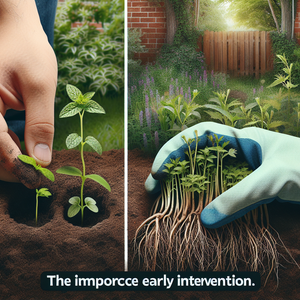Philanthropy as Profit: How Carnegie's Charitable Ventures Reinvented His Legacy

Carnegie’s philanthropic journey began in earnest with the founding of the Carnegie Corporation of New York in 1911, aimed at promoting the advancement of education and knowledge. His belief in the power of education was rooted in his own experiences; having immigrated to the United States as a poor Scottish lad, he understood the transformative power of learning. He once stated, "The man who dies rich dies disgraced," encapsulating his conviction that wealth should serve a greater purpose. Carnegie's commitment to education led to significant investments in public libraries across the United States. Over 2,500 libraries were established thanks to his donations, which became vital community resources, providing access to books and knowledge to millions who would not have otherwise had such opportunities. This initiative not only democratized information but also encouraged self-improvement and lifelong learning among the populace. The impact of these libraries can still be felt today, as they foster a culture of reading and education that is essential for a functioning democracy.
Cultural Institutions and the Arts
Beyond libraries, Carnegie expanded his philanthropic reach into cultural institutions. He donated a substantial part of his fortune to the establishment of institutions such as Carnegie Hall in New York City, which became an iconic venue for the arts. His commitment to the arts underscored his belief that culture was essential to a well-rounded society. By fostering music and the arts, Carnegie aimed to elevate the human experience, reflecting his own appreciation for beauty and creativity. Moreover, Carnegie's funding of the Carnegie Museum of Natural History in Pittsburgh and the Carnegie Institute of Technology (now Carnegie Mellon University) demonstrated his vision of a society enriched by both scientific inquiry and artistic expression. These contributions not only enriched the cultural fabric of the nation but also inspired a legacy of philanthropy among his peers and successors. The institutions he established continue to thrive, serving as testaments to his belief in the importance of arts and sciences in everyday life.
Influencing Future Philanthropists
Carnegie's philanthropic philosophy influenced a generation of wealthy individuals, setting a standard for what it meant to be a responsible capitalist. His essay "The Gospel of Wealth" articulated the principle that the wealthy have an obligation to use their riches for the greater good. This text had a lasting impact on the philanthropic practices of later industrialists such as John D. Rockefeller and Henry Ford. Carnegie's emphasis on strategic giving, aimed at creating systemic change rather than mere charity, laid the groundwork for modern philanthropic practices. The establishment of foundations, such as the Ford Foundation and the Rockefeller Foundation, can be traced back to the ideals espoused by Carnegie. His approach advocated for empowering individuals and communities rather than fostering dependency, thus ensuring that his legacy endured beyond his lifetime. By promoting initiatives that addressed the root causes of social issues, Carnegie's philosophy encouraged a more sustainable and impactful form of philanthropy that many still aspire to emulate today.
Andrew Carnegie’s transition from steel magnate to philanthropist redefined his legacy, illustrating a profound shift in the perception of wealth and its responsibilities. Through his significant contributions to education, culture, and public welfare, Carnegie not only transformed the lives of countless individuals but also set a precedent for future generations of philanthropists. His life serves as a testament to the idea that wealth is not merely an accumulation of resources but a tool for societal betterment. Today, Carnegie's vision continues to inspire individuals and organizations to harness their resources for the common good, ensuring that the spirit of philanthropy remains a vital part of the American landscape. His legacy is a powerful reminder that the true measure of wealth lies not in its possession but in its thoughtful and meaningful application to enhance the lives of others.
Philanthropic Program Manager
Bill & Melinda Gates Foundation, local non-profits, educational institutions
Core Responsibilities
Develop and manage programs that align with the organization’s mission, focusing on education and community impact.
Collaborate with stakeholders to assess community needs and tailor initiatives accordingly.
Monitor and evaluate program effectiveness, preparing reports to communicate outcomes to donors and board members.
Required Skills
Strong project management skills with a proven ability to handle multiple initiatives simultaneously.
Excellent communication skills for engaging with diverse communities and stakeholders.
Experience in grant writing and fundraising strategies.
Cultural Program Coordinator
Local arts councils, museums, cultural centers, Carnegie Hall
Core Responsibilities
Plan and execute cultural events and programs that promote the arts within the community.
Collaborate with artists, cultural organizations, and schools to create engaging programming.
Conduct outreach to increase community participation and awareness of cultural offerings.
Required Skills
Strong organizational and event planning skills with attention to detail.
Knowledge of the arts and cultural landscape, including local artists and organizations.
Ability to manage budgets and sponsorships effectively.
Educational Grant Writer
Educational institutions, non-profits focused on education, community development organizations
Core Responsibilities
Research and identify grant opportunities that support educational initiatives.
Write compelling grant proposals that clearly articulate project needs and expected outcomes.
Maintain relationships with funding organizations and report on project progress and financials.
Required Skills
Excellent writing skills with the ability to convey complex ideas succinctly.
Familiarity with educational programs and funding landscapes.
Strong analytical skills to assess funding needs and outcomes.
Community Outreach Specialist
Non-profits, local government agencies, community service organizations
Core Responsibilities
Develop and implement outreach strategies to engage the community in educational and cultural programs.
Build partnerships with local organizations, schools, and businesses to enhance program visibility.
Collect and analyze community feedback to improve outreach efforts and program offerings.
Required Skills
Strong interpersonal and networking skills for effective community engagement.
Proficiency in social media and digital communication strategies.
Experience in program evaluation and community needs assessment.
Museum Curator
Art museums, history museums, cultural institutions, Carnegie Museum of Natural History
Core Responsibilities
Oversee the acquisition, care, and display of collections, ensuring they align with the museum's educational mission.
Develop educational programs and exhibitions that engage the public and enhance visitor experience.
Conduct research and write publications related to collections and exhibitions.
Required Skills
Advanced knowledge in art history, anthropology, or a related field, often requiring a Master's degree.
Strong organizational and project management skills to handle multiple exhibitions and programs.
Excellent communication skills for engaging with the public and presenting research findings.


